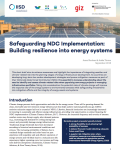
This brief aims to enhance awareness and highlight the importance of integrating weather and climate-related risks into the planning stages of energy infrastructure development. As countries are developing long-term low-carbon development strategies and pursue mitigation measures as part of their Nationally Determined Contribution (NDC), it is essential to increase understanding about the need to identify and assess climate-related risks when appraising new energy projects or managing infrastructure portfolios.
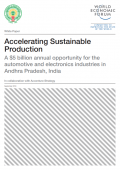
This White Paper assesses the opportunities that Fourth Industrial Revolution technologies could bring to Andhra Pradesh, India and its resident companies to enhance competitiveness in the automotive and electronics industries while creating positive social and environmental impact, resulting in a $5 billion annual opportunity by 2022.
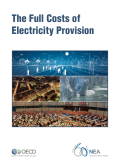
As currently constituted, the price of electricity in today's markets does not accurately reflect the costs of electricity on the society and the environment. Adopting approaches suggested in this paper would allow policy makers and the public to make better informed decisions along the path towards fully sustainable electricity systems.
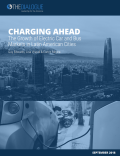
Charging Ahead: The Growth of Electric Car and Bus Markets in Latin American Cities addresses a number of critical questions about electric transportation in Latin America, drawing on case studies of six urban electric car and bus markets that have seen among the fastest growth in the region.
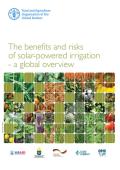
In 2015, the Food and Agriculture Organization of the United Nations (FAO) and the Deutsche Gesellschaft für Internationale Zusammenarbeit (GIZ) GmbH hosted an exploratory workshop to better understand the potential of solar-powered irrigation systems (SPIS) for developing countries.
In 2018, this report was prepared to take stock of the experiences with SPIS around the world. It includes insights on the following questions:
